Nutritional requirement for special groups
Some people in the home may have special problems.
They therefore may need special when it comes to the diet or meals.
Such groups, for example,
- pregnant and lactating mothers need special diets.
Pregnant mothers
Pregnant mothers are a special group since they carry offsprings in their wombs.
Pregnant mothers need to eat food that caters for two: the child in the womb and herself.


Nutritional requirements for a pregnant mother
- Lots of proteins to build body parts of the unborn child and for growth and repair of mother’s tissues for example the womb.
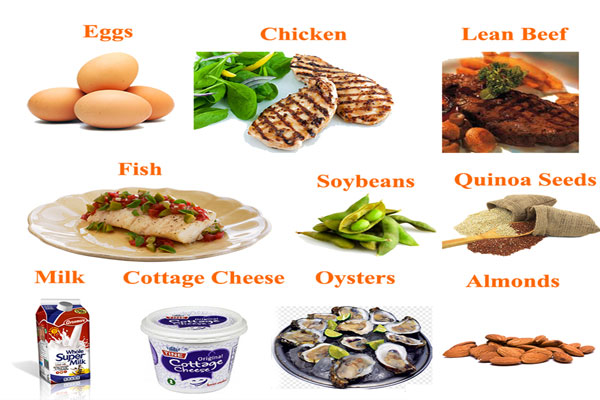
- An expectant mother should take at least half a litre of milk everyday
- Lots of carbohydrate to give energy for movement and for working of body parts because she is heavier than usual.
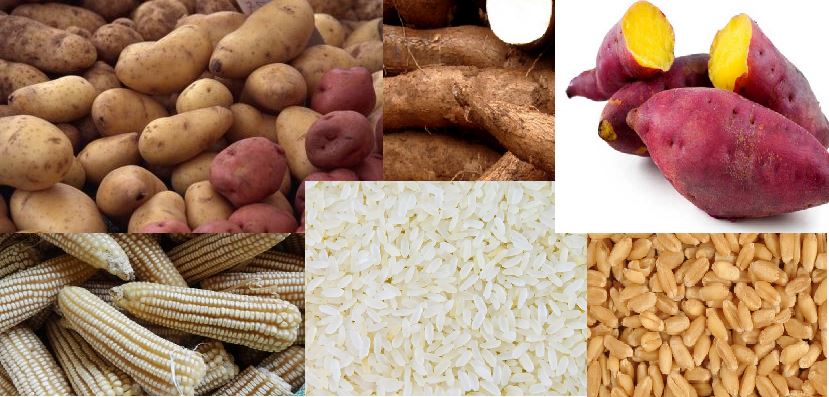
- However, too much carbohydrates are dangerous because she might become overweight and suffer from obesity which may complicate birth.
Carbohydrates are also needed for the energy of the child who needs to move and turn in the womb
- A pregnant mother also needs fresh fruits and vegetables to provide minerals and vitamins for both the baby and herself to keep away diseases.
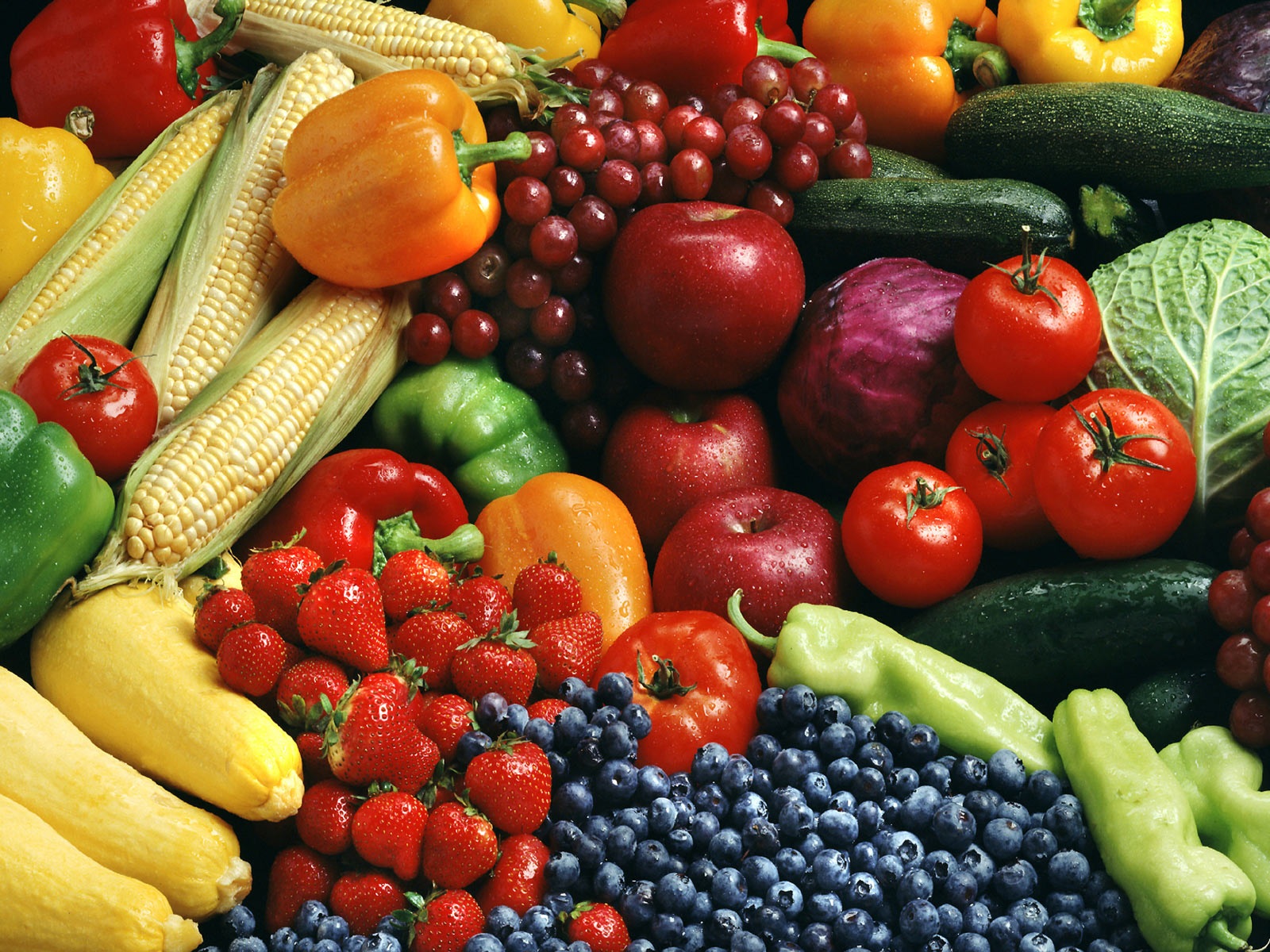
- Pregnant mother needs iron for making the child’s blood.
- Foods rich in calcium such as milk and eggs are important for forming teeth and bones in the growing baby.
- The diet of the pregnant mother should be served with plenty of drinking water and fresh fruit juices.She should take at least two litres of liquids per day.
Lactating mothers
A lactating mother is a breast feeding mother.
She needs a special diet to cater for her needs and to her help produce sufficient breast milk to feed and satisfy the new born baby who fully relies on breast milk.
Nutritional requirements for a lactating mother
They need a diet with :
- Proteins, especially milk which will help her to make milk for breast feeding the child. Proteins assist her to make colostrum (the first milk produced by a mother after birth), which the child gets from the milk. Colostrum help to protect the child from diseases. Proteins help the mother to build and repair tissues that were affected by pregnancy and birth.
- Fats and carbohydrates: the lactating mother needs a diet with carbohydrates to provide energy for her to breast feed the baby, move around and for the body to do its normal functions.
Nutrition for infants
An infant is a child between birth and two years.
Such a child is not able to feed on the normal family meal because the digestive system is not developed enough to cope.
The infant may also have no teeth.
Nutritional requirements for an infant
- Breast milk is the best food for an infant since it forms a whole meal.
- Milk is a balanced diet as it contains proteins, carbohydrates, fats, minerals and vitamins.
- It also has lots of water, which the infant needs.
- In the first stages of breast feeding, colostrum produced by the mother help to fight diseases like measles from the child.

- Breast milk is highly digestible, ever ready and at the right temperature and does not cost much.
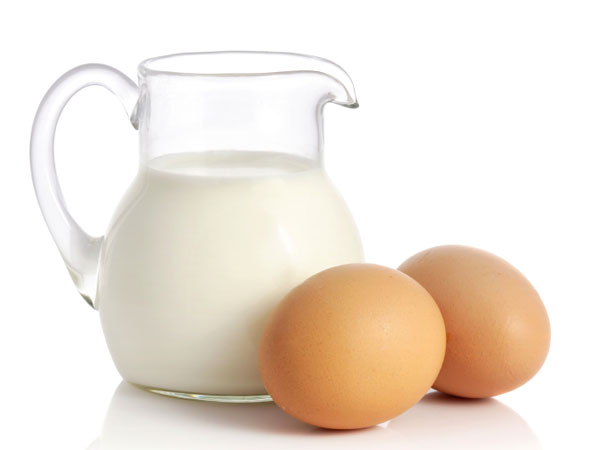
- Once in a while the baby should be given fresh fruit juices to provide minerals and vitamins to supplement those in breast milk.
- As the baby grows, cow’s milk and solid food such as porridge can be introduced a little at a time.
- These provide more proteins for body building and growth, and carbohydrates for energy, movement and body functions.
- They need proteins for body building and repair because they need more cells to grow.
Nutrition for people with HIV and AIDS
HIV/AIDS is a terminal disease that has no cure.
A person with HIV/AIDS needs to feed well in order for the body to have sufficient nutrients to be able to maintain its health.
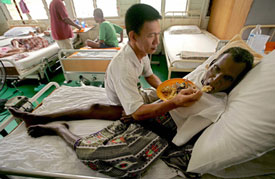
Nutritional requirements for a person with HIV/AIDS
- A diet of protective foods to provide minerals and vitamins to fight disease germs.
- If the patient has wounds or sores in the mouth, the person should feed on liquid food.Solid food for example ugali or rice may be made liquid by mixing with milk.
- It is essential that the HIV/AIDS patient exercises and goes to visit a doctor.
- The patient therefore needs energy. The body must also perform its normal functions such as breathing, heartbeat, blood circulation and other muscle movements. All these need energy.The patient should therefore be given a diet containing carbohydrates and fats.
- If the patient is suffering from diarrhoea, there is need to take more fluids, like clean water and fresh fruit juices. At least two litres per day should be taken by the patient to avoid dehydration.
- When a person is having diarrhoea, the body loses minerals. It is therefore important that the patient takes the oral rehydration salts (ORS), which is made by dissolving one packet of the commercially acquired ORS packet in one litre of water.
- The patient then takes one glass every time after passing watery stool.
- In the absence of ORS the patient can make salt sugar solution (SSS), which is made by dissolving one teaspoonful of salt and eight tea spoonfuls of sugar in a litre of water.
- The patient should take one glass of this solution every time after having diarrhoea or passing watery stool.






